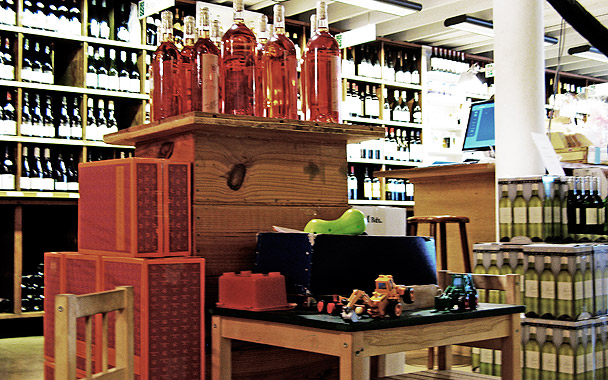There’s a good trick to figuring out what to buy in a wine store when you don’t know the particular labels: Just turn the bottle around and look for the small print that says who imported it. Get to know the importers whose tastes you share, and you can follow them to some great finds.
That’s easy to say when you taste enough wine to have compiled such a list, as I have. (You can find my list in the inside cover of my book, or check out Mike Steinberger’s list.) But here in Hamburg, Germany, where my family is living for the summer, this trick doesn’t work. The wines don’t have back labels. Even the front labels aren’t so helpful when you’re not intimately acquainted with the Trollingers of Würtemburg, Dornfelders from the Rheinhessen, and Elblings of the Obermosel. I’ve found wines made from grapes I’ve never even heard of—Bacchus, Faberebe, Fruehrot Veltliner.
I feel like I’m 21 again, venturing into a wine store to find a bottle for some special dinner and having no idea what to look for, let alone what to say to the people working there, watching me, wondering why I came in. The experience has been a good reminder of what to look for in a store. Vast selection isn’t it; one of my favorite stores here has maybe 50 labels, sold alongside art and chocolate, the owner’s two other passions. She knows every wine, and can tell me which will go better with my matjes this evening.
Service means everything: If the staff doesn’t want me in their store, I don’t want their wine. My bad German puts some people off, understandably. My two-year-old seems to provoke anxiety, also understandably, in a place filled with glass bottles. So when I come across a store in which the wine seller smiles and jokes with her, then leads her to a kid-size table filled with paper, pencils, books, and puzzles before returning to see if he can help me, I’m sold. And when I ask in atrocious German if he might be able to recommend a German wine as a pairing for pasta with pesto (not a traditional match, but I’m on a mission to try as much German wine as possible while here), and he, rather than switching to English, gently helps me out when I stumble on a word, and offers three options, each described in slow, careful German, I’m his for life. Because not only has he made it clear he’s heard me and he’s looking out for my best interests, he’s also just made me feel like a million bucks.
The cost of that particular experience? 8.70 Euros. I may not come home.

